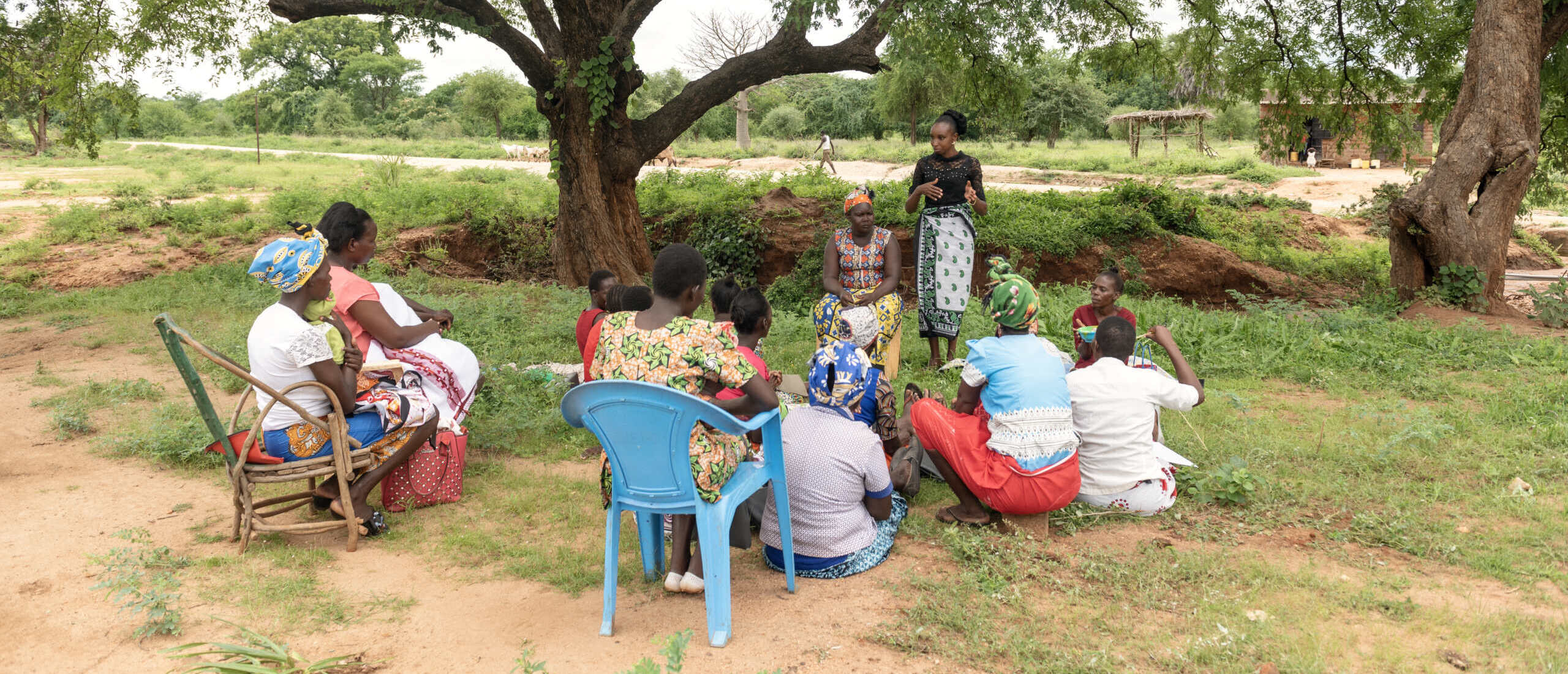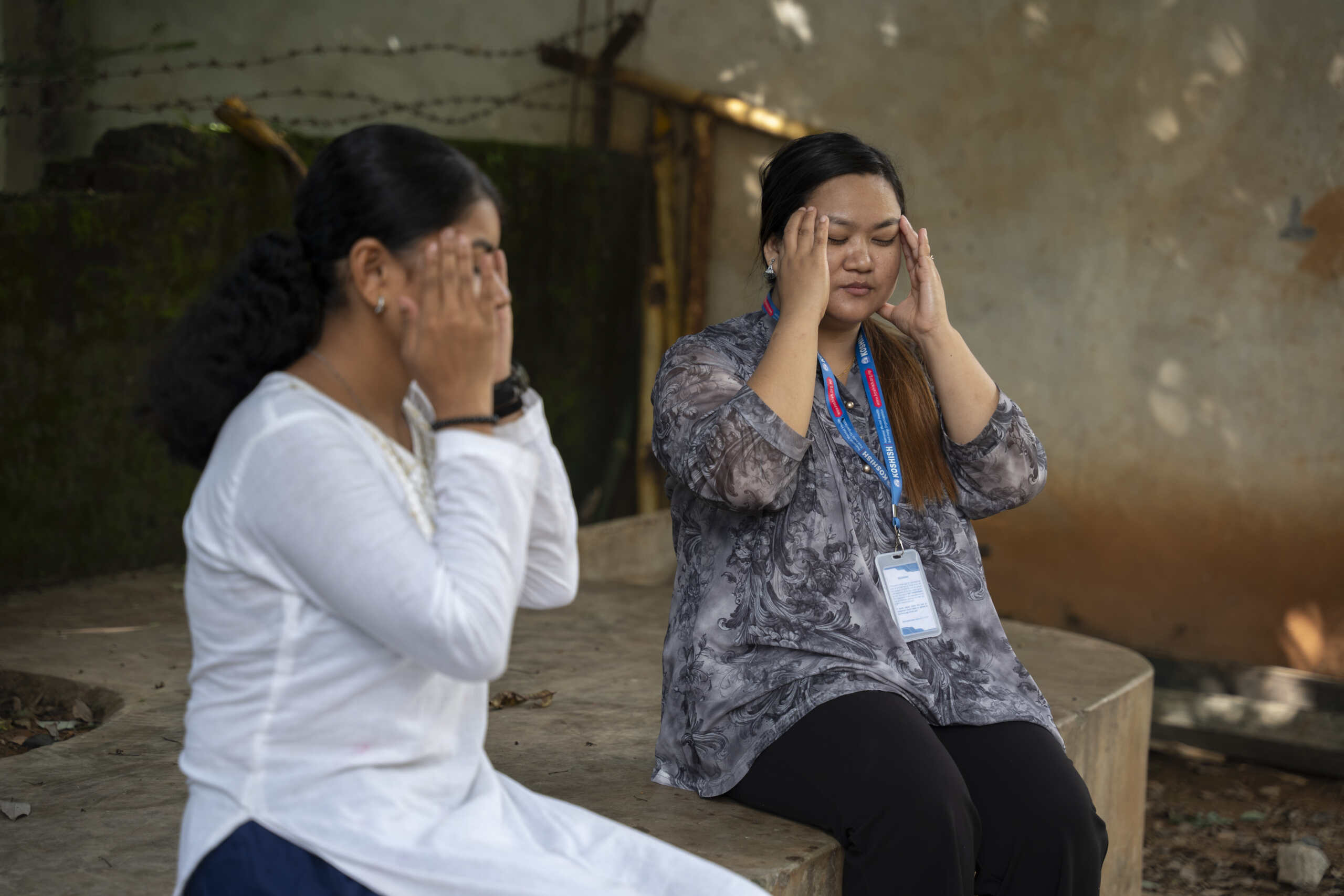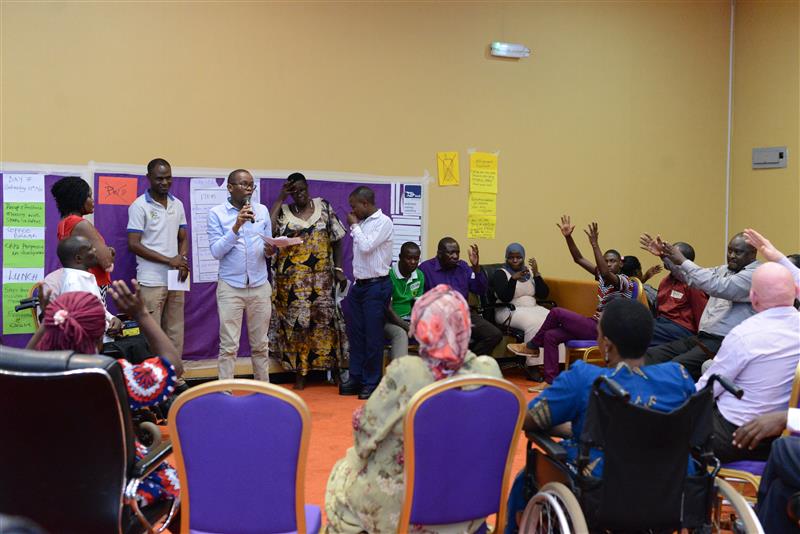Disability inclusive safeguarding must be the standard
Blog | April 29, 2024
Sarah Moon, Safeguarding Manager of CBM Global, talks about working with organisations of persons with disabilities to ensure disability inclusive safeguarding standards are at the front and centre of our work.
Persons with disabilities are three times more likely to experience sexual violence than those without disabilities – with women with disabilities being up to 10 times more likely to experience sexual violence than others.
Our safeguarding framework can be as well polished as you like but if our reporting mechanisms are not accessible or trusted by people who come into contact with our programmes, we are failing. Consultation is key and talking to people with disabilities about ways in which they would feel safe reporting a safeguarding concern is not a step we can miss.
Last month in Bangladesh and Nepal I spent time doing just that. People with disabilities told me that the biggest barrier to reporting was trust. Trust in the mechanisms and trust in the response. They told me about too many times where systems and mechanisms had failed them and so their reluctance to trust a toll-free number or email address is hardly surprising.
Tika Dahal and Meena Paudel from the Nepal Disabled Women Association said “We receive calls from all over the country, people are frightened. They don’t want to write or call, they want to meet with someone, there are people here they can trust but trust takes time.”
It is clear that Organisations of Persons with Disabilities (OPDs) are key in this trust-building process, they are the representatives and collective voice of our project participants. Working with OPDs to design disability inclusive safeguarding measures that are trusted by the people they are designed to protect should be integral to quality programming, not an add-on.
CBM Global’s commitment to working in partnership with OPDs is an opportunity to really put into practice the idea that safeguarding is everyone’s responsibility. Supporting OPDs to strengthen their safeguarding frameworks and build capacity might be what is required of us. Honestly, this can sometimes feel overwhelming but in doing so we all learn together so that we take safeguarding beyond compliance ensuring it becomes front and centre of our work. This is the start of building trust.
Disability inclusive safeguarding must be the standard.
Follow us on LinkedIn and X and share your thoughts, experience, or practice on how we can ensure that reporting mechanisms for safeguarding concerns are truly accessible and trusted by persons with disabilities.
https://cbm-global.org/blog/disability-inclusive-safeguarding
Related News

What our partners told us and how it shapes our future
One of our strategic priorities as a Federation is to shift power in partnerships....

Breaking Stigma, Building Hope: Suicide Prevention in Nepal
After losing her young daughter to suicide, Maya developed a mental health condition while...

Accessibility, reasonable accommodation, and budgeting for inclusion
Budgeting for inclusion, accessibility, and reasonable accommodation must be...
